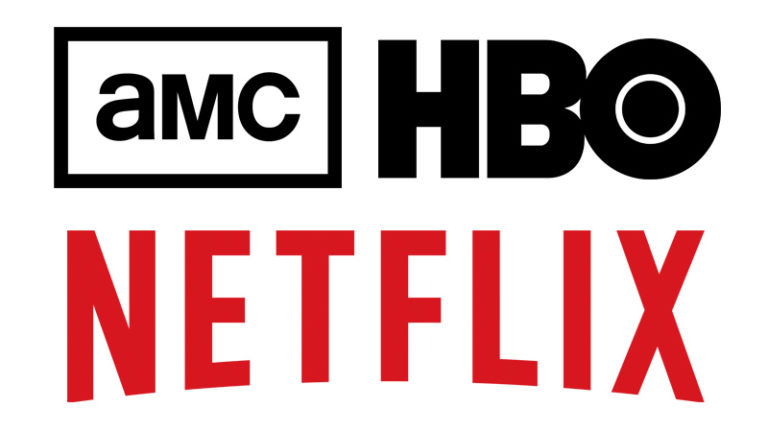
By: Travis Maiuro
Whether you’re busy slaving away on an original pilot or a spec script, it can be easy to forget that the industry you’re writing for more closely resembles a bank than the writer’s workshop group you meet with every other Tuesday night. It’s the TV business, and in the era of ‘Peak TV’ there’s a lot of it to go around. Some would even say there’s just way too much to keep up with. And as the business itself grows, so does the cost of making it.
Earlier this year, within the span of a week, Netflix canceled two of its original series: “Sense8” and “The Get Down.” These series just so happened to be two of Netflix’s top three priciest shows, according to this LA Times article, costing north of $108 million and $120 million per season, respectively. These are not the price tags you want when your series has trouble attracting the audience size that something like “Orange is the New Black” garners.
Do you have a pilot that needs to be read? Enter the ScreenCraft Pilot Launch TV Script Competition here.
“Orange is the New Black” was just as much of a risk, though, costing about $4 million an episode for a show that nobody saw growing into what it is today. But the show did what it was supposed to do -- it became a hit. How it avoided the premature deaths that befell “Sense8” or “The Get Down” is hard to say; there are many factors that create a hit show, much of it having to do with luck and timing. It’s all about taking the chance. That’s what TV is: it’s a business of risk/reward.

Netflix, Amazon, and HBO tend to be a little more liberal in their embrace of the risk/reward model than network television. They can afford to be more risky as the business model has changed in their favor: they don’t have to deal with advertisers in the same way networks do.
But network TV still embraces the same risks. After all, network TV is where the streaming services and premium channels learned it from. For this business, spending big is necessary to survive.
From pitch to pilot.
It all begins with the pitch -- or a spec script, or a talent deal, or the purchased rights of some kind of source material (“Game of Thrones”, “OITNB”, etc.). But more often than not, it starts with the pitch: hundreds of pitches will be presented to studio bigwigs throughout the year and only a few will move on to be developed further.
It’s like a much more cutthroat version of “Shark Tank” or something. The pitch is all about execution and performance, as more often than not, an actual script doesn’t exist at this point. (It also helps to have a proven track record as a producer/writer in order to even secure a pitch meeting.) No track record? Suck at pitching your ideas out loud? If you’re lucky enough, you can write the next buzzed about “spec” pilot that’ll make its way around town and (ideally) create a bidding war, which is something that sometimes happens. (Rare, yes, but still a thing.)
Regardless of how the initial idea of the show begins, once it’s moved on to development, it becomes a script and “development season” starts. The script is either bought by the studio or passed on. A network will develop a few pilots, willing to risk spending the average $2 to 5 million to shoot them despite the fact that most will never be picked up for series and see the light of day.
Using CBS as an example, according to Variety’s 2017 Pilot/Development Scorecard, the network picked up seven pilots for series, ordered pilots for four shows, and either rolled (delayed) or terminated two pilots. And just because those pilots were ordered to series doesn’t mean there’s a guarantee. Just this year saw a Katherine Heigl show called “Doubt” cancelled after just the second episode with the fate of the remaining eleven episodes (whether they’d ever be shown) unknown.
The process that CBS follows is relatively the same for all of the major networks. A (very expensive) chance is taken on a few pilots and, if the network is lucky, a couple of them will find success. Hell, even if one of the pilots found success (staying on for more than one season), that would be a good year and for the network, totally worth it. Given that only 35% of all pilots aired across all the networks stand a chance of surviving past a single season, a network will take what it can get.
The importance of advertising.
This is where advertising comes in. Ad sales help the networks stay afloat and not drown in their respective seas of dead pilots and series. But snagging the advertiser isn’t always that easy, especially for pilots, as nothing is ever a sure thing. In the new Netflix series “GLOW,” the fifth episode finds a couple of the wrestlers joining their director and producer to try and sell their show to a local sponsor. But the thing is, they don’t have much to sell just yet. This is sort of a bare-bones, lo-fi version of what TV networks do every May at network upfronts -- a taste of the show is given (even if there’s not much to give) in the hopes of snagging an advertiser for the season.
But ad sales aren’t the only lifeline for networks. This is where exclusive content comes in -- something that saved AMC from dying a slow death and what HBO, Amazon, and Netflix live and breathe on. The “big” television networks like NBC, ABC, FOX, and CBS make their “exclusive” cash from selling syndication rights so that their content can be rebroadcast elsewhere. In addition, networks jump for exclusive airing rights for events like the Olympics, or the Super Bowl - the sort of thing that maximized ad-revenue.
AMC and channels like TNT and TBS, on the other hand, are not in a position to buy something like the Olympics. In fact, these channels were essentially the aforementioned places you would go to find that redistributed content from the big four networks (reruns of “Friends”, etc.). But with Netflix, reruns were available at the touch and click of a button, which was a threat to what made these channels so popular. So they took a risk and waded into the original content waters. It paid off -- particularly for AMC, producing three hit shows: “The Walking Dead,” “Mad Men,” and “Breaking Bad,” the latter two arguably on the list of the greatest TV shows of all time.
 Original programming.
Original programming.
Netflix and Amazon, among others, have gone all in on their own original content. Netflix is focused on making 50% of its content original programming, which will in turn cut down on the number or licensed product Netflix boasts (i.e. those aforementioned re-runs at the click of a button). But this is a ripple effect Netflix is fine with because it’s for the sake of attracting new subscribers. If one wanted to check out the much buzzed about “Stranger Things” last summer, they obviously needed to subscribe. It’s like being part of a club.
But this is still a big bet for Netflix as it threatens what made them successful as a streaming platform in the first place -- draining their once vast library of licensed content for the sake of original shows that come with no guarantee of success. For every “Stranger Things” there’s going to be a “Sense8” and “The Get Down.” But if we’ve learned anything, the price of hit TV is all about taking the bet.
As Netflix’s boss of content Ted Sarandos put it, “Overspending is relative.” Referencing the hefty price tag “The Get Down” boasted, Sarandos said (before it premiered), if the show catches on and finds success, it would be “money well spent, the way it is for ‘House of Cards’ or ‘Orange is the New Black.’” In retrospect, we know this didn’t quite work out, but that’s the point, because, again, it’s all about the bet. Earlier I compared the TV business to a bank -- but perhaps it’s closer to something like Vegas. In this business, playing it safe doesn’t breed success.
In other words, the price of hit TV ain’t cheap.
For all the latest ScreenCraft news and updates, follow us on Twitter and Facebook!
Tags
Get Our Screenwriting Newsletter!
Get weekly writing inspiration delivered to your inbox - including industry news, popular articles, and more!

 Original programming.
Original programming.




















